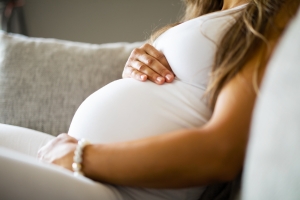The two main forms of inflammatory bowel disease (IBD), Crohn’s disease and ulcerative colitis, are seen in many people who are of reproductive age which can often raise concerns over their ability to reproduce. As IBD affects everyone differently and each person’s pregnancy, with or without IBD, is unique it is so important to discuss any other concerns you may have with your doctors. This will allow you to obtain the best possible advice on how to maintain your own health as well as that of your unborn child.
It is common knowledge that pregnancy increases your body’s nutritional requirements as I’m sure you have heard the phrase ‘eating for two’ being used. Therefore, you may not only require eating more to keep up with this increased nutritional demand but also you may need to take supplements even before you conceive to prepare your body for pregnancy. Eating a well-balanced diet will help your baby grow and develop and so there is no need to go on a special diet but eating a variety of foods is the best way to get the essential vitamins and minerals that your baby needs. However, if you feel you may not be getting enough or may need supplements, it is always best to talk to your doctor first as they can prescribe supplements such as folic acid.
 Folic acid is also known as folate or vitamin B9 which works in conjunction with vitamin B12 in the formation of new blood cells in the body. It is important for women who are thinking of getting pregnant or who are already pregnant to take folic acid supplements as both vitamin B12 and folic acid deficiencies can cause fertility problems as well as increase the risk of neural tube defects and folate deficiency anaemia occurring. Folate supplementation in women whose small intestines is affected with Crohn’s disease or who have had parts of their small intestines removed due to surgery can be especially important. This is because the small intestines is where we absorb our nutrients from our food and having portions either affect by IBD or removed can reduce the amount that is taken in.
Folic acid is also known as folate or vitamin B9 which works in conjunction with vitamin B12 in the formation of new blood cells in the body. It is important for women who are thinking of getting pregnant or who are already pregnant to take folic acid supplements as both vitamin B12 and folic acid deficiencies can cause fertility problems as well as increase the risk of neural tube defects and folate deficiency anaemia occurring. Folate supplementation in women whose small intestines is affected with Crohn’s disease or who have had parts of their small intestines removed due to surgery can be especially important. This is because the small intestines is where we absorb our nutrients from our food and having portions either affect by IBD or removed can reduce the amount that is taken in.
People with IBD can have food intolerances. An example of this is lactose intolerance, where you lack the enzyme that breaks down lactose which is found in dairy products. This can cause you to avoid this food group and so you may not be able to obtain enough calcium, which is essential for the normal functioning of our vascular, nervous and skeletal system, from diet alone. Calcium is important for the development of the unborn child as it contributes to making your baby’s bones. In the human body a process called ossification (formation of bone tissue) requires not only calcium but phosphate and vitamins A, C and D to occur.
Vitamin A (retinol) is a fat-soluble vitamin found in foods such as carrots, kale and sweet potatoes. It is important as part of a well-balanced diet as it contributes to the normal functioning of the immune system, skin and digestive system. A deficiency in vitamin A can cause a condition called xerophthalmia where your eyes become dry and in people with IBD where their ileum is affected or removed can become deficient as that is where vitamin A is absorbed. However, it is advised that you should not take extra vitamin A or supplements containing retinol while you are pregnant unless suggested to and supervised by your doctor as it could potentially cause harm your baby.
 Pregnancy will no doubt take its toll on your body and so you may find yourself becoming tired. This tiredness can be caused by a lack of iron from your diet which can cause you to become anaemic. One of the most common problems associated with IBD is anaemia which can occur due to either intestinal inflammation reducing the ability of your body to absorb essential nutrients, not getting enough iron from your diet or from the frequent blood loss depleting your iron stores. Your IBD doctor may have already put you on iron supplementation if you suffer from iron deficiency anaemia and will be the best person to go to for additional advice on its use during pregnancy.
Pregnancy will no doubt take its toll on your body and so you may find yourself becoming tired. This tiredness can be caused by a lack of iron from your diet which can cause you to become anaemic. One of the most common problems associated with IBD is anaemia which can occur due to either intestinal inflammation reducing the ability of your body to absorb essential nutrients, not getting enough iron from your diet or from the frequent blood loss depleting your iron stores. Your IBD doctor may have already put you on iron supplementation if you suffer from iron deficiency anaemia and will be the best person to go to for additional advice on its use during pregnancy.
Most women who have IBD can still experience a normal pregnancy and have a healthy baby if they have their IBD under control. As one of the causes of IBD is thought to be due to the genes we inherit making us more susceptible to IBD, your child has a slightly higher chance of developing IBD. If you are planning a pregnancy and have IBD it is important to discuss the potential risks of your medication on your pregnancy with your doctors. If you are already pregnant it is important to schedule regular follow ups with your IBD doctors as well as your obstetricians to monitor not only your health but that of your baby.
About Ziyad



Leave a Comment: